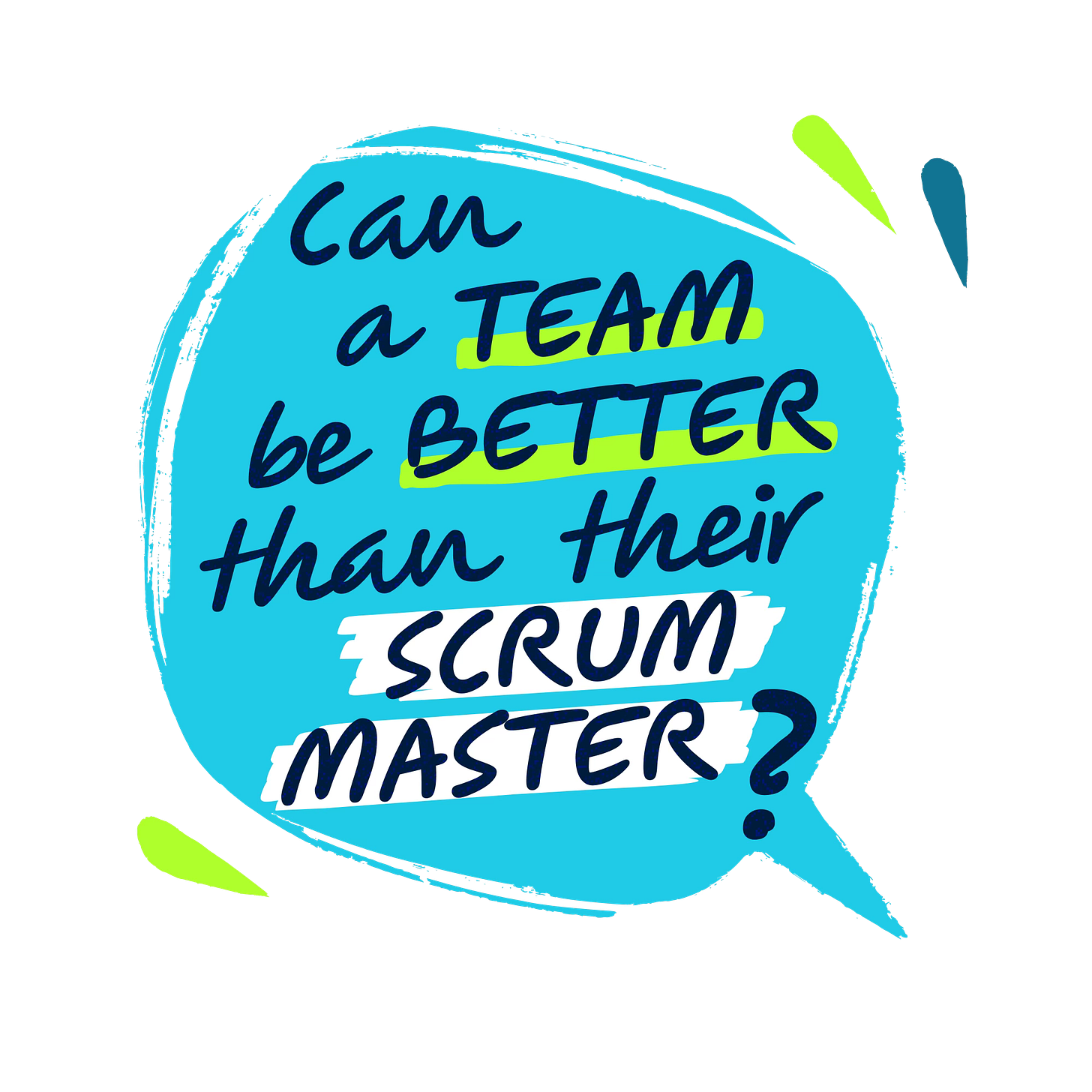Can a Team Be Better Than Their Scrum Master?
While any team member is crucial for the team’s success, their collective potential can indeed surpass the abilities of any single individual.
Whether a team can be better than its Scrum Master touches on the dynamics of leadership, collaboration, and continuous improvement.
In any collaborative environment, the relationship between a team and its Scrum Master is based on aiming at common goals while embracing empiricism, striving for self-management and building on shared values.
It involves balance, humility, and continuous evolution in achieving sustainable value delivery and collaboration.
1. The Risk of Over-Reliance on the Scrum Master:
While a Scrum Master is there to guide and support the team, there's a risk of the team becoming too reliant on their Scrum Master for decision-making and conflict resolution. When this happens, the team's potential for self-managing and growth can be affected.
A genuinely effective Scrum Master knows when to step back, focusing on facilitation rather than solving, encouraging the team to build the skills needed to address problems independently, thus fostering a culture where the team can surpass the Scrum Master's capabilities.
2. The Balance Between Servant Leadership and Guidance:
A Scrum Master is a servant leader, not a traditional manager. However, there can be a delicate balance between pointing in the right direction and allowing the team to find its path. If a Scrum Master leans too heavily on command rather than facilitation, it can hinder the team's ability to innovate and excel.
Conversely, too much detachment may leave the team directionless. The most successful teams find the balance, sometimes developing leadership practices that enhance their performance beyond the Scrum Master's contributions.
3. Scrum Master's Accountability in Enabling vs. Controlling:
An enabling Scrum Master fosters an environment where the team feels safe to experiment, fail, and learn, which can lead to the team outperforming expectations.
However, a controlling Scrum Master may inadvertently limit the team's growth, creating a ceiling on what the team can achieve. Understanding this distinction is critical for teams to reach their full potential.
4. Focus on Value:
Scrum teams focus on delivering maximum value through the products they develop. When a team deeply understands the customer's needs and the product's value proposition, they may develop strategies and solutions that are more effective.
This focus on product value can lead to outcomes where the team outperforms the expectations set by the Scrum Master.
5. Collective Intelligence:
A Scrum team brings together diverse skills, experiences, and perspectives. This diversity contributes to a form of collective intelligence that can often surpass the insights of any one person, including the Scrum Master.
When team members collaborate effectively, they can identify and solve problems in ways that a single individual might not, demonstrating how a team can be better than its Scrum Master.
While the Scrum Master plays an essential role in guiding and supporting the team, the very principles of Scrum encourage teams to evolve and grow beyond the capabilities of any single individual.
A genuinely effective Scrum team, empowered by self-management, collective intelligence, and a commitment to continuous improvement, can and should aim to outpace their Scrum Master.
These dynamic highlights the strength of collaboration and shared leadership within Scrum, underscoring the potential for teams to achieve excellence together.



